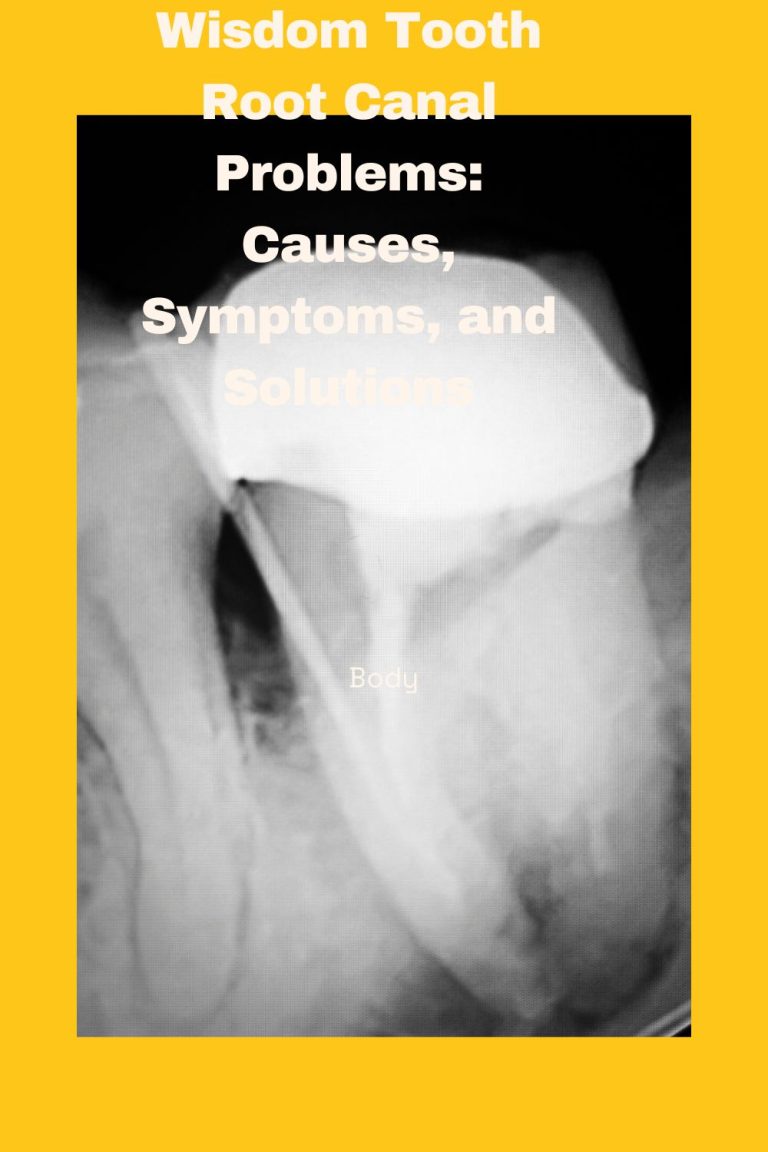Can a Root Canal Fail?
In the United States, people are getting root canal treatment every day. Research shows that around 15 million root canals are done every year. While root canals are generally successful, there is a slight chance that the procedure can fail.
Your tooth is vital to you. It’s what helps you eat, talk, and show off your smile. So when you hear that you might need a root canal, it’s natural to worry.
Will it hurt? How long will it take? And most importantly, can a root canal fail?
The answer is yes, a root canal can fail. But it’s an uncommon thing. In fact, according to the American Association of Endodontists, the success rate for root canals is over 95%.
There are a few reasons why a root canal might fail. The most common reason is that the infection has not been completely removed from the tooth. Sometimes, bacteria can hide in hard-to-reach places and continue to cause problems.
If this happens, you may need another root canal or even an extraction. Another reason for failure is if the filling or crown placed after the procedure comes loose. This is usually due to improper placement or poor dental hygiene.
So, it would help if you kept brushing and flossing regularly. Keep dental checkups every six months to help prevent this from happening. If you’re considering a root canal, don’t let the fear of failure hold you back. With proper care and maintenance, your procedure should be successful, and your tooth will be saved!
Why Does a Root Canal Fail?
What are the Symptoms of a Failed Root Canal?
The procedure is getting your infected tooth back. A successful root canal can help to restore a damaged tooth to its normal function and appearance.
We are here with some indication of root canal failure. The most common symptoms of a failed root canal are pain, swelling, and inflammation. These symptoms can be caused by an infection that has spread from the inside of the tooth to the surrounding tissues.
In some cases, a failed root canal can also lead to abscesses (pockets of pus). If you experience any of these symptoms, it is essential to see your dentist as soon as possible so that they can determine if you need further treatment. In some cases, it may be necessary to have another root canal procedure if the first one fails.
Symptoms of a failed root canal include:
- Persistent pain in the treated tooth and sensitivity to hot and cold temperatures.
- Swelling in the gums around the treated tooth.
In other cases, extraction may be the only option. Your dentist will be able to recommend the best course of treatment based on the severity of your symptoms and the underlying cause of your problem.
What Happens When Root Canal Fails?
When a root canal fails, it means that the nerve inside the tooth has become infected. This can happen for some reasons, including the tooth not being cleaned properly during the root canal procedure.
- There was an undetected crack in the tooth that allowed bacteria to enter and infect the nerve.
- The temporary filling placed in the tooth after the root canal procedure fell out, allowing bacteria to enter and infect the nerve. When you understand your root canal is a failure.
You need to contact your dentist as soon as possible.
They will be able to tell if the infection is still active or if it has spread to other parts of the tooth. If caught early enough, your dentist may be able to save the tooth with another round of root canal therapy. However, if the infection has progressed too far, they may need to extract (pull) the tooth.
How Common is Root Canal Failure?
When the dentist starts a root canal, they first remove the nerve and pulp from the tooth. After cleaning correctly, the tooth gets sealed. Root canals have a high success rate and usually last a lifetime; however, there are some cases where they fail.
Root canal failure can occur due to several reasons: -The infection was not completely removed during the initial procedure, allowing bacteria to grow back and re-infect the tooth. The tooth was not properly sealed after the procedure, allowing bacteria to enter and infect the tooth.
There was damage to the surrounding teeth during the procedure, which allowed bacteria to enter and infect the treated tooth. If you think you may have a failed root canal, it’s essential to see your dentist as soon as possible. They will be able to determine if the root canal has indeed failed and recommend further treatment options.
Can a Root Canal Be Redone?
A root canal can be redone if there is new decay or infection in the tooth or if the original root canal was not done correctly.
Can a Root Canal Fail After Years
Root canals are usually successful, but there are cases where they can fail. Why might a root canal fail? There is some reason for a root canal to fall.
A successful root canal can last a lifetime; however, there are some cases where the tooth may require additional treatment or even extraction.
One of the most common reasons for root canal failure is due to inadequate cleaning and sealing of the tooth during the initial procedure. If bacteria are not removed from the inside of the tooth, they can continue to cause infection and damage. In some cases, the root canal may need to be redone in order to achieve success.
Other causes of root canal failure include: -Damage to the dental crown or other restoration.
One reason is if the infection or damage to the tooth is too severe. If the Root Canal Procedure Is Not Completed Properly: The success of a root canal depends on proper technique and complete removal of all infected tissue. If even a tiny amount of bacteria remain in your tooth after treatment, they can cause re-infection.
Another reason for failure is if the sealant placed on the tooth after treatment fails to prevent bacteria from entering. The sealant can break down over time, allowing bacteria to enter and infect the tooth again. The third reason for failure is if the surrounding teeth become diseased or damaged.
This can put pressure on the treated tooth, causing it to crack or break. These include persistent pain in the treated tooth and tooth discoloration.
-swelling around the treated tooth
Should Dentist Pay for Failed Root Canal
Dental patients who have undergone a root canal procedure may be surprised to learn that their dentist may not be responsible for paying for a failed root canal. Many insurance companies will not cover the cost of a failed root canal, leaving the patient responsible for the entire bill.
The most common reason is that the tooth was not adequately cleaned before the procedure was performed. If bacteria is still present in the tooth, it can cause the root canal to become infected. Another common reason for failure is that the wrong size file was used during the procedure.
If the file is too small, it can damage the tissue inside the tooth and cause an infection. Finally, if the sealant used to fill the roots is not applied correctly, it can allow bacteria to enter and infect the tooth again. If you have had a root canal procedure and it has failed, you should contact your dentist immediately.
They will likely recommend that you see an endodontist (a specialist in treating teeth) to have them assess the situation and determine if another root canal can be performed. If another root canal is not possible, they may recommend extracting the tooth or performing a pulpectomy (removal of just the pulp). No matter what course of treatment is recommended, it is essential to remember that you may be responsible for paying for it out of pocket.
Be sure to check with your insurance company before having any dental work done to see if they will cover the cost of a failed root canal.
Can A X-Ray Find Fail Root Canal?

Root canals are a standard dental procedure, but they only sometimes go according to plan. Sometimes, a root canal can fail, which can be detected on an x-ray. There are a few reasons why a root canal might fail.
One possibility is that the tooth wasn’t cleaned out properly during the procedure, and bacteria were left behind. This can cause an infection, which may need to be treated with antibiotics before another root canal can be attempted. Another possibility is that the filling material used to seal up the tooth needs to be placed correctly, or it needs to be compatible with the tooth structure.
This can cause the filling to leak, allowing bacteria to enter and causing an infection. In this case, the failed root canal will need to be redone using different materials. If you have had a root canal and you’re experiencing pain or other symptoms, it’s essential to see your dentist right away so that any problems can be addressed promptly.
How Many Times Can a Root Canal Retreat
When a root canal is performed, the goal is to remove all of the infected tissue from inside the tooth so that it can be sealed off and protected. However, sometimes the infection is not completely removed and can come back. If this happens, you may need to have retreatment, which is another root canal procedure.
The good news is that retreatments are usually successful in getting rid of the infection. Retreatments have a success rate of around 95%. However, there are some cases where retreatment may not be possible or may not be successful.
For example, if the original root canal was not done correctly or if too much of the tooth structure has been damaged by the infection. If you do need retreatment, it’s essential to know that there are limits to how many times you can have one. In general, you should only undergo two or three retreatments on a single tooth before considering an alternative treatment option such as extraction.
This is because each time you have retreatment, there is more risk of damaging the tooth structure and making it difficult to seal off the infection completely. So if you’ve had a root canal that failed or became infected again, don’t despair – there’s still a good chance that retreatment will be successful. Just be sure to consult with your dentist first so they can assess whether it’s the best option for you and your smile!
Is a Dentist Responsible for a Failed Root Canal?
Although root canals are generally successful, there are times when the procedure fails.
If you have had a root canal that failed, you may be wondering who is responsible for the failure. Several factors can contribute to a failed root canal, including -Inadequate cleaning of the tooth during the procedure.
If bacteria and debris are not removed from inside the tooth before it is sealed, they can continue to cause infection and damage. -Damage to the tooth during the procedure. If the tooth is cracked or damaged in any way during the root canal, this can make it more susceptible to future problems.
Sealant material that does not adhere properly to the tooth. If the sealant material does not bond properly with the tooth, bacteria can enter and cause an infection. If you have had a root canal that failed, it is essential to see your dentist as soon as possible so that they can determine what caused the failure and recommend appropriate treatment.
In some cases, a second root canal may be necessary; however, if extensive damage has occurred, it may be required to extract (or remove)the tooth.
Can a Failed Root Canal Be Fixed?
If you’ve ever had a root canal, you know they’re no fun. But what happens if your root canal fails? Can it be fixed?
The short answer is yes, a failed root canal can be fixed. However, it can be a challenging fix. Depending on the reason for the failure and the condition of your tooth, your dentist may have to do some additional work to get your tooth back in shape.
There are a few different reasons why a root canal may fail. One common reason is that the dentist didn’t remove all of the infected tissue from your tooth during the initial procedure. This can happen if the infection is located in hard-to-reach places or if the dentist needs to be more experienced.
Another common reason for root canal failure is re-infection. This can happen if bacteria are able to enter your tooth through cracks or other openings. Once bacteria are inside your tooth, they can start to multiply and cause infection again.
Re-infection is more likely to occur if you don’t follow good oral hygiene habits after having a root canal or if you have another dental procedure done on the same tooth soon after the root canal (such as getting a crown). If your root canal fails, don’t panic! Your dentist will be able to determine why it failed and develop a treatment plan to get your tooth back in good shape again.
Conclusion
A common reason for root canal failure is that the tooth was not adequately cleaned before the root canal was performed. If bacteria is still present in the tooth, it can cause the root canal to fail.
Another common reason for a root canal to fail is that the seal between the tooth and the filling material breaks down, allowing bacteria to enter the tooth again.



